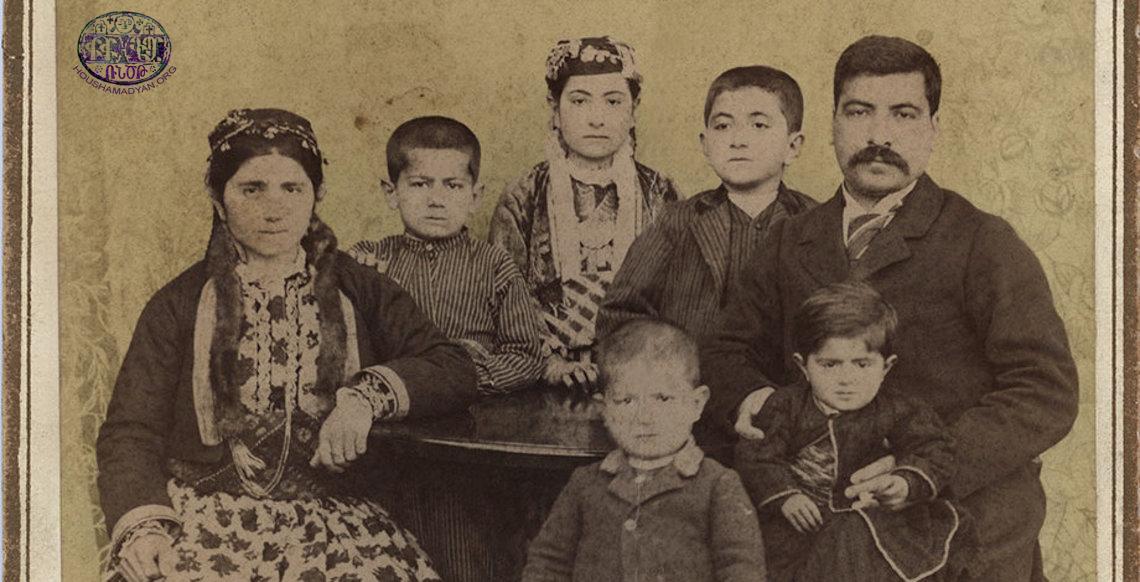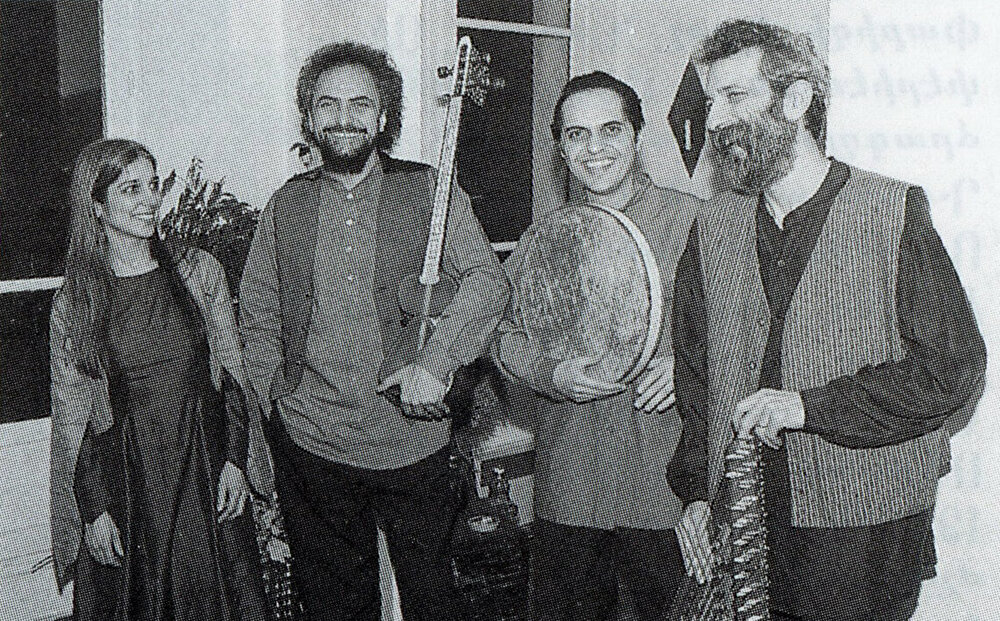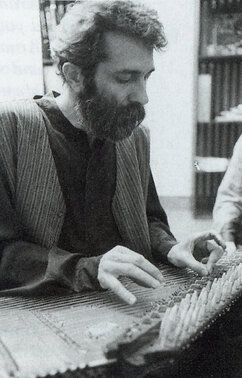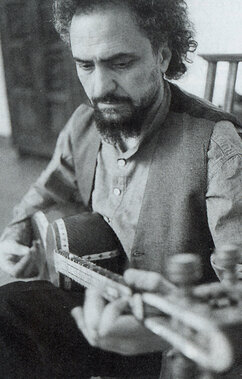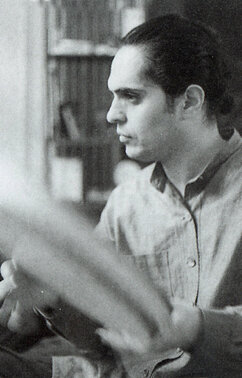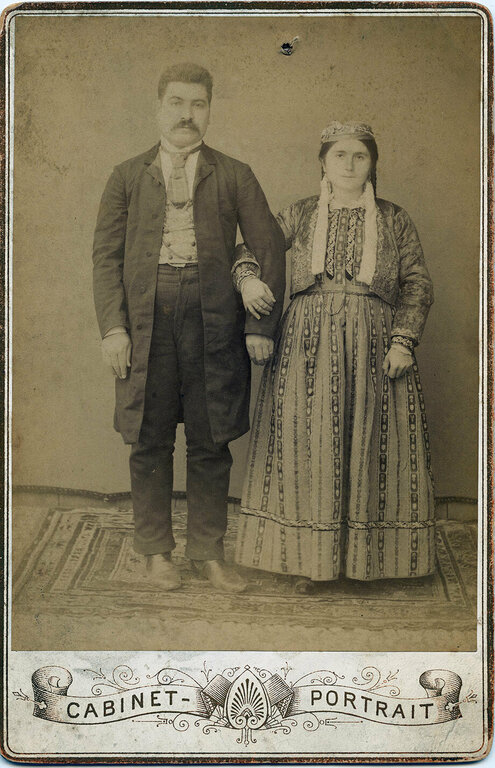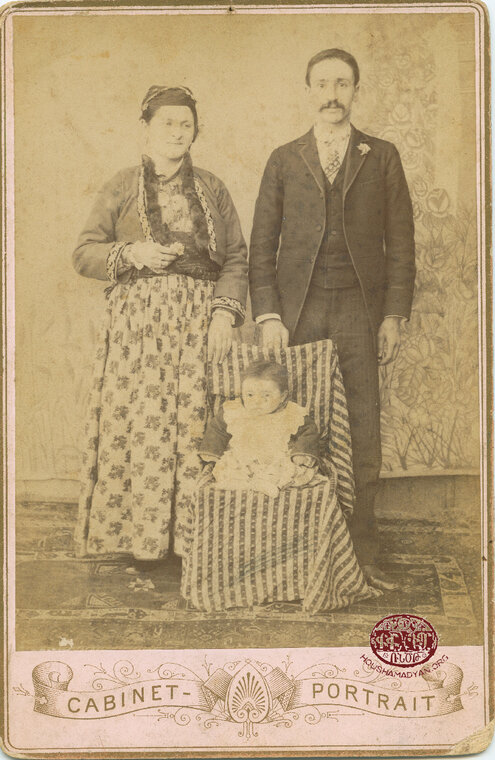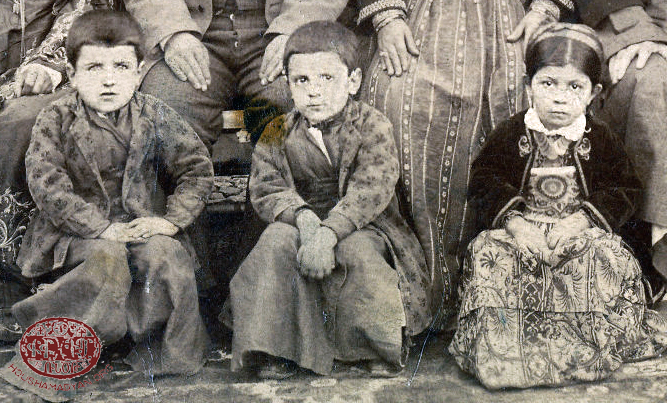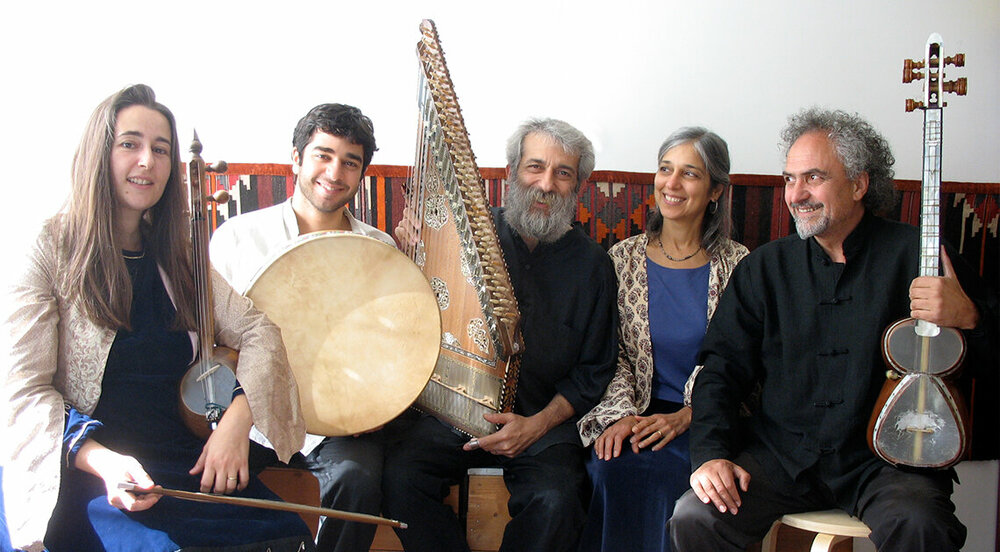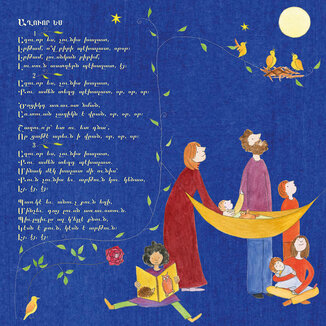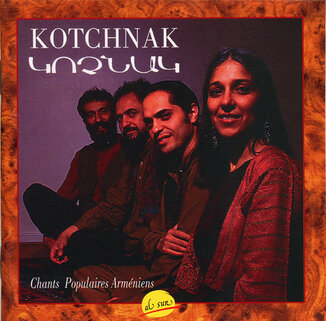Agn Songs - The Ensemble Kotchnak
Author: Virginia Pattie Kerovpyan,11/04/20 (Last modified 11/04/20)

Folk songs of Agn/Eğin [Kemaliye] and surrounding districts
“The mountains and valleys, dales and streams of Agn breathe poetry. Historical reminiscences, songs, customs: everything there is poetic” (A. A. [Arpiar Arpiarian], "People of Agn and People of Gesaria", Hairenik daily, 8 August 1891, No 22, 22nd Year, Constantinople).
This quotation conveys the prodigy of Agn's beautiful poetry. As will be seen in the following poems, the mother singing a lullaby to her little one or the villagers singing praises of the bride, all are exquisitely refined poetry using images from their pastoral surroundings.
There are many texts in the Armenian language praising the poetry of Agn. This wealth of poems includes the famous "Andouni"-s, with subjects from love to estrangement, from the praise of one's surroundings to wandering and expatriation.
The poetry deserves its praise. The music of the songs is also extraordinary, differing from that found in other areas of Armenian mountains and plains. Like the poetry, it is intricate and ornamented and brings to mind the sounds of nature: the rush and flow of water, the flutter and whirl of the wind.
The collection of melodies transcribed by Mihran Toumajan gives us a glimpse at the ephemeral musical landscape of Agn.

The Ensemble Kotchnak
The encounter in Paris in 1980 of the duo Rouben Haroutunian, tar player, and Virginia Pattie, with Aram Kerovpyan, kanoun player, was the beginning of the ensemble Kotchnak. Since then, such musicians as Mahmoud Tabrizi-Zadeh, kamancha, Edmond Zartarian, dhol and dap, Madjid Khaladj, dap, and Anouch Donabedian-Krikorian, kamancha, have been part of the ensemble. Kotchnak has performed all over Europe and the United States.
In more recent years, Kotchnak has performed mostly in a duo and trio form. Vahan Kerovpyan now plays dap with the ensemble Kotchnak and in a trio form, and Maral and Shushan Kerovpyan have also occasionally joined in.
Kotchnak's orientation has been to recognize and perform traditional Armenian folk and troubadour music as Middle Eastern monodic and modal music, using instruments of that region.
In the late 19th and early 20th centuries, Armenians were uprooted and survivors, with their fragmented folk traditions and belongings, were scattered between the Middle East, Europe, the Americas, and even Australia and Africa. Fortunately, a few musicians and collectors, including Father Gomidas and Krikor Suny, collected many folk songs before the genocide. Later, Gomidas' students, Mihran Toumajan in particular, continued this work, visiting survivors in the Diaspora. Song collecting in Soviet Armenia was also undertaken by groups of musicologists who made important recordings and publications.
Ethnomusicologist, Bedros Alahaydoyan collected songs in the Diaspora and in Armenia in more recent years. He has published 2 volumes of songs with CD's and his recordings are now becoming available online through Houshamadyan, a living treasure for all.
These aural examples give proof, if need be, that the direction taken by Kotchnak at its beginnings was indeed the right road for rendering Armenian folk and troubadour music as a living traditional form with its roots in Asia Minor and the Caucasus.
Over Kotchnak's forty years of existence, the members have consulted songs transcribed with Western music notation and "read between the lines" to uncover the modality of the songs. These modes are shared by all the peoples of the area: Greeks, Persians, Turks, Assyrians, Kurds and so on. They each have their own approaches, languages and modal variants which influence the development of the melodies while being in a similar modal environment.
1. Agn, circa 1885: Wedding portrait of Nicolas and Makrouhy Derghazarian Gabrielian. Photo by A. F. Gabrielian (Source: PROJECT SAVE, Armenian Photograph Archives, Watertown, MA, courtesey of Syranoush Movsesian).
2. Agn, 1910. Standing, from left to right – Roza Kaboolian (nee Messomian) and Roza’s husband Kegham “John” Kaboolian. Between them sits their daughter, Arpen. She was born in 1911 or 1912 (Source: Project SAVE Armenian Photograph Archives, Courtesy of Arpen Kaboolian Abrahamian).

Wedding songs of Agn
This arrangement was made by the ensemble Kotchnak, and recorded in 1997.
Kotchnak, Chants Populaires Arméniens, Al Sur
with Rouben Haroutunian, tar and voice; Aram Kerovpyan, kanoun and voice; Virginia Kerovpyan, voice; Madjid Khaladj, dap.
(family and friends sing to bride) Pari loos, aghvor, pari loos. (2X) Pari loosoun, parin vrat. (2X) (bride sings) (groom's family sings) Menk, ay aghvor aghchig, eger enk tseru, Kez hazar nazerov goo danink meru; (family and friends sing to groom) Takvoru gulor poyen e, an aghvorneroon soyen e. (2X) Mi lar, koorig, mi lar, is mi latsuner! Khat mu lat enk perer, gurnagut antsoor, | TRANSLATION Good morning, lovely bride, good light! May light and goodness be yours. (bride sings) (groom's family sings) We have come to fetch you, lovely bride, We come offering embroidered blouses The king (groom) has praiseworthy stature, (bride sings) Don't cry, my sister, don't cry, you'll make me cry! We have brought you a mantle of fine cloth, |
Sources
From songs collected and transcribed by Mihran Toumajan, one of Father Gomidas' students, between 1923 and 1936 (Mihran Toumajan, Hayreni Yerk ou Pan (Songs and Folklore from the Homeland), vol. 2, SSRA, Academy of Sciences Publication, Yerevan, 1983).
Transcribed songs sung by:
1. Zumroukhd Medzadourian, Plovdiv, 1923
2. Varsenig Kaboulian, New York City, 1935
3. Mama Ipranian, New York City, 1936
4. Verkin Ghazarian, New York City, 1935
5. Vartanoush Yeghigian, New York City, 1936
6. Ovsanna Ormanian, Plovdiv, 1935

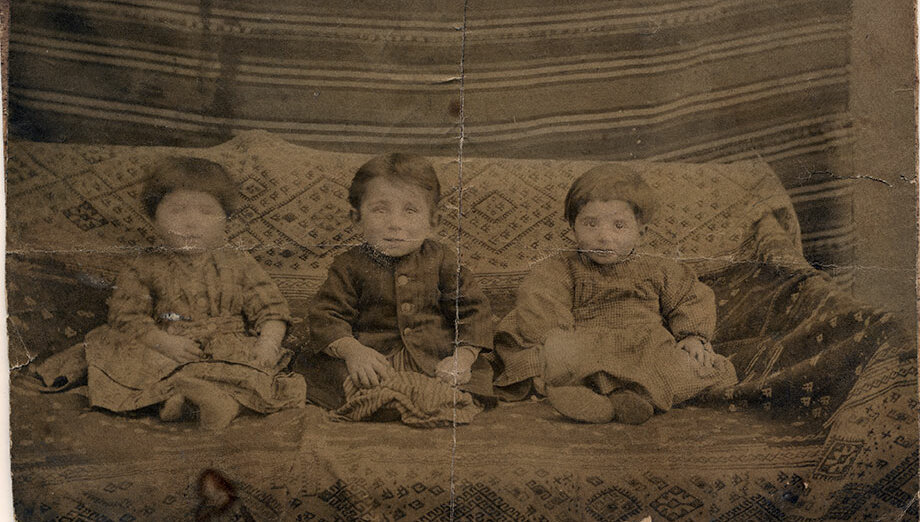

Agn Lullabies
Four lullabies from Agn and the surrounding area collected and transcribed by Mihran Toumajan, one of Father Gomidas' students, between 1923 and 1936, and one variant transcribed by Gomidas Vartabed around 1895.
From Roori, book and CD of Armenian lullabies, published by the Akn Association in April 2016, Paris.
Song, Virginia Kerovpyan; kanoun, Aram Kerovpyan; illustration, Maral Kerovpyan.
Orerut Shadna [Rock-a-bye, may your days be many]
From Agn Oror, oror, orim vor kunanas, | TRANSLATION |
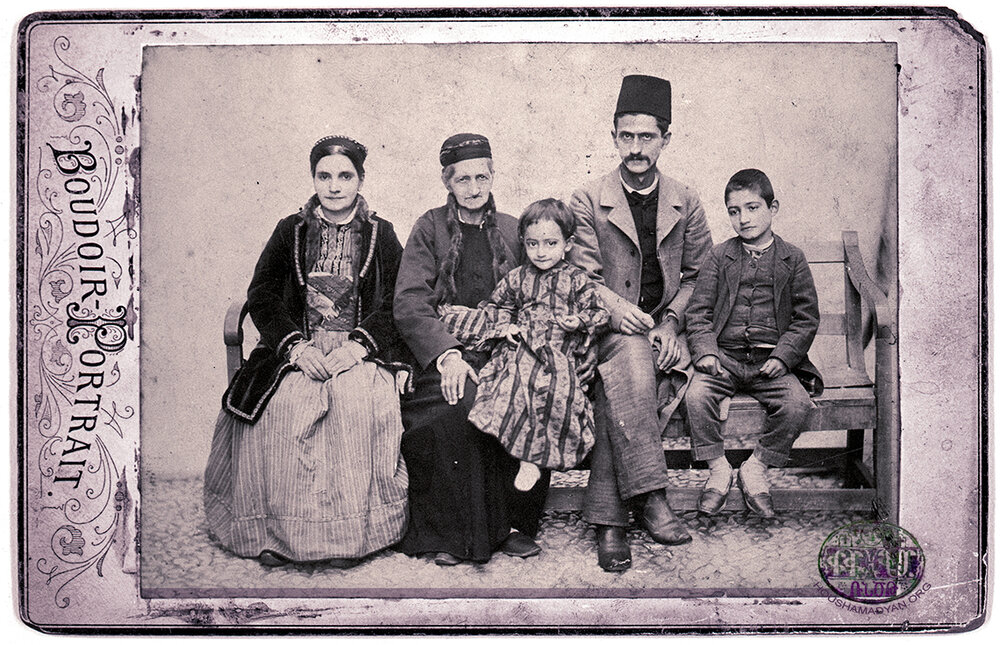

Aghvor es [You are precious]
Agn town version Pingean/Penga [Adatepe] village version Dzotsigt aravod numan, Shaghvor, yed oo yed kuna, Agn town version Barge yev anoosh koon yeghi, | TRANSLATION Pingean/Penga [Adatepe] village version Your countenance is like the morning, Moist mists retreat Agn town version Lie down so that sweet slumber will come |
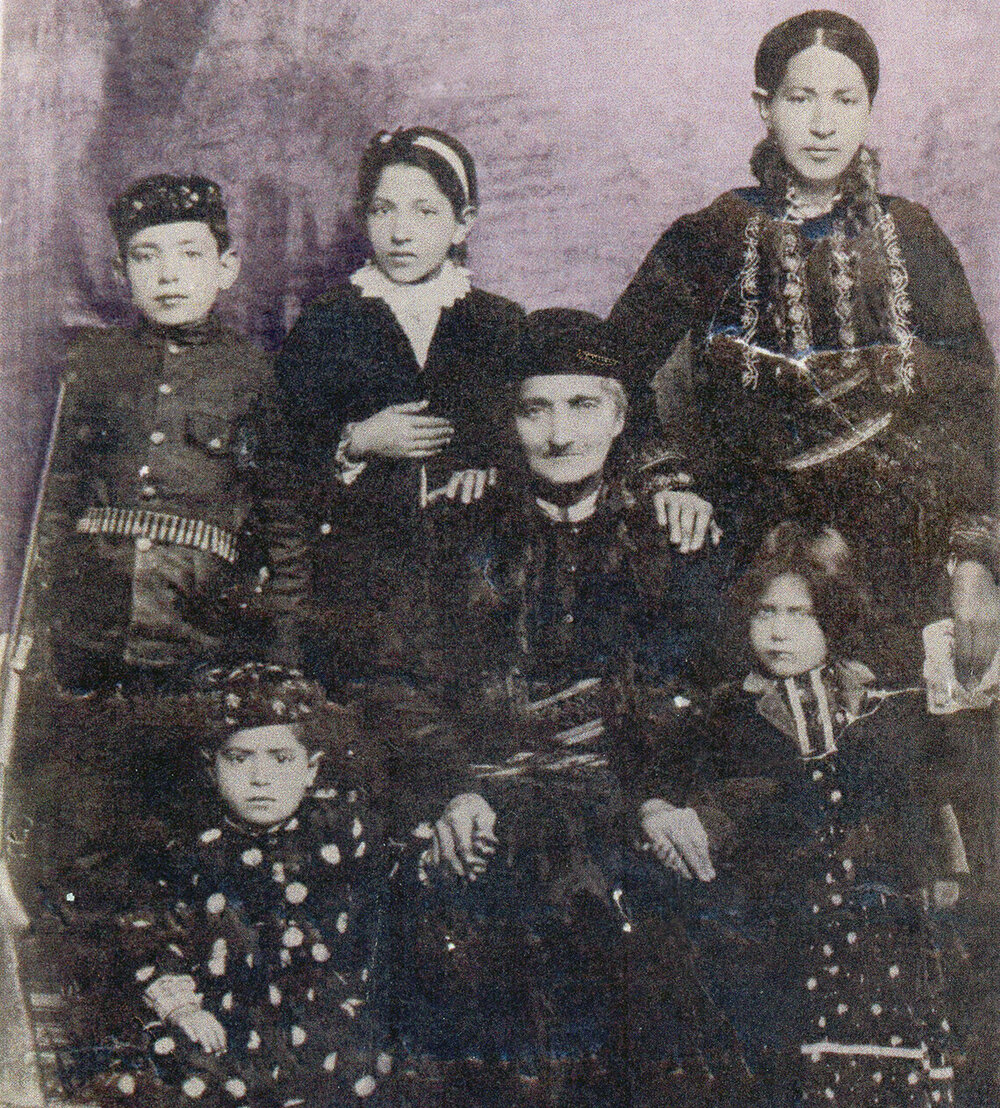

Oror, oreroot hamar [That your days should be many]
From Armudan [Armutlu] village, near Agn Oror, oror, oror, Oror, oror, oror, Oror, oror, oror, Oror, oror, oror, | TRANSLATION From Armudan [Armutlu] village, near Agn Oror, oror, oror, Oror, oror, oror, Oror, oror, oror, |

Bulboolu baghchan ichav [The nightingale flew into the garden]
From Pingean/Penga [Adatepe] village Bulboolu baghchan ichav, Inch vart gar, kulkhoon turav, Baghchan gabem gakhoran, Danem kez giuli baghchan, Oorineroo shooku vuran, | TRANSLATION It nestled its head amongst the roses I will hang your cradle-hammock in the garden, I will take you to the rose garden, The shade of the willow tree upon you, |

Sources
Mihran Toumajan, Hayreni Yerk ou Pan (Songs and Folklore from the Homeland), vol. 2, SSRA, Academy of Sciences Publication, Yerevan, 1983
Hunootiunk Agna, songs transcribed by Father Gomidas and Krikor Efendi Mehterian, M.T. Rodineantsi publishing, Tiflis, 1895.
Transcribed lullabies sung by:
1. Verkin Ghazarian, New York City, 1935
2. a - Hovsep Janikian, 1895
2. b - Zumroukhd Medzadourian, Plovdiv, 1923
2. c - Verkin Ghazarian, New York City, 1935
3. Ovsanna Ormanian, Plovdiv, 1935
4. Vartanoush Yeghigian, New York City, 1936
The source of the lullabies on this page is "Roori - Armenian lullabies to sleep and to put to sleep", book and CD. To purchase it, you can visit the following site:
